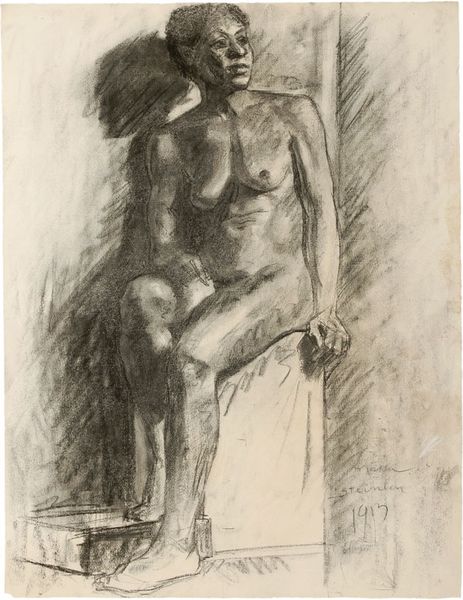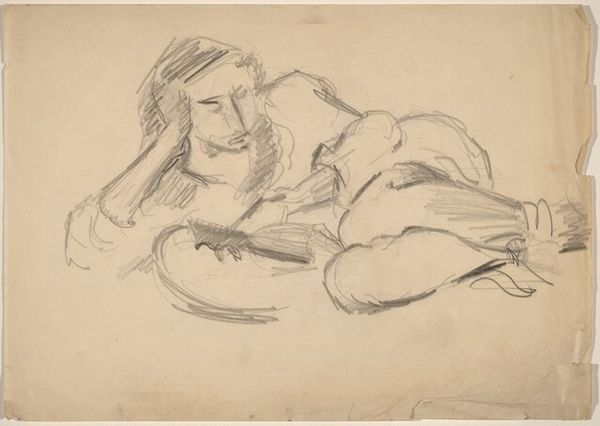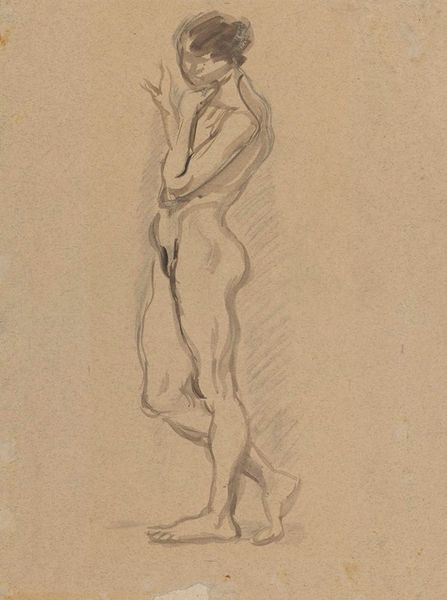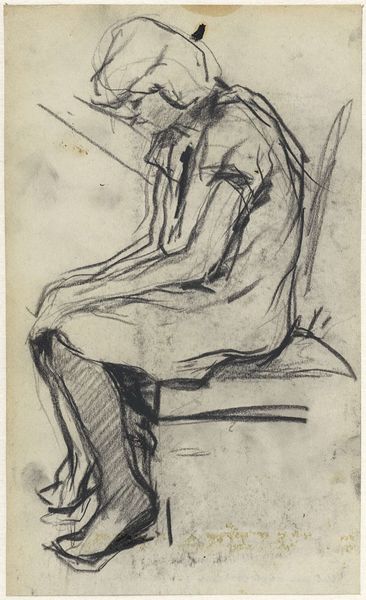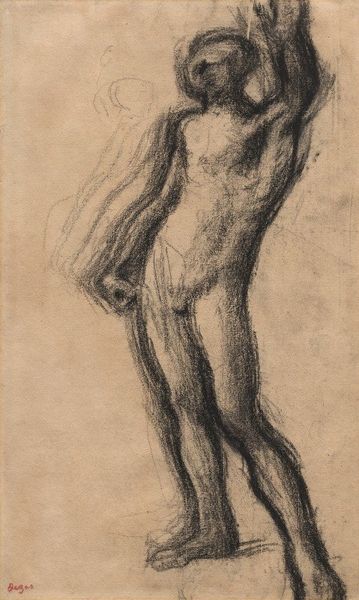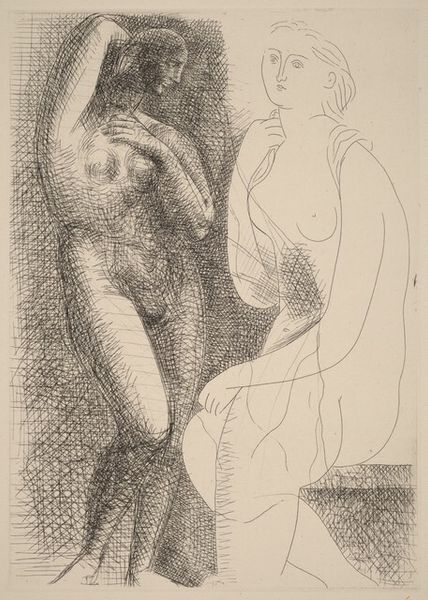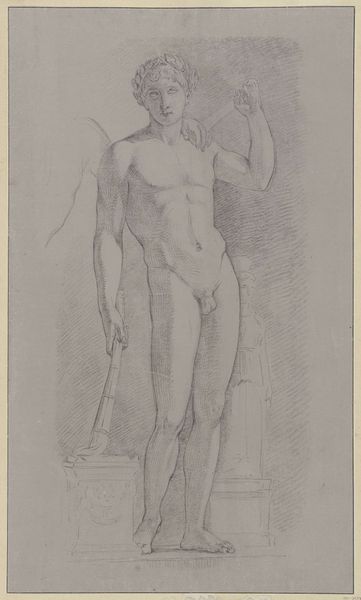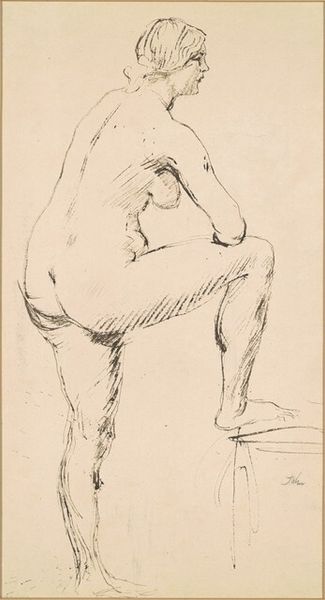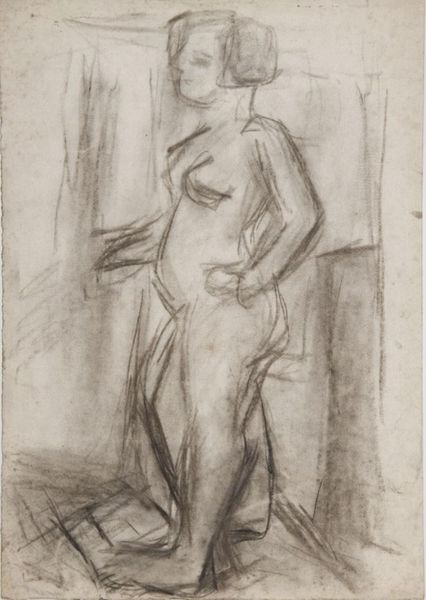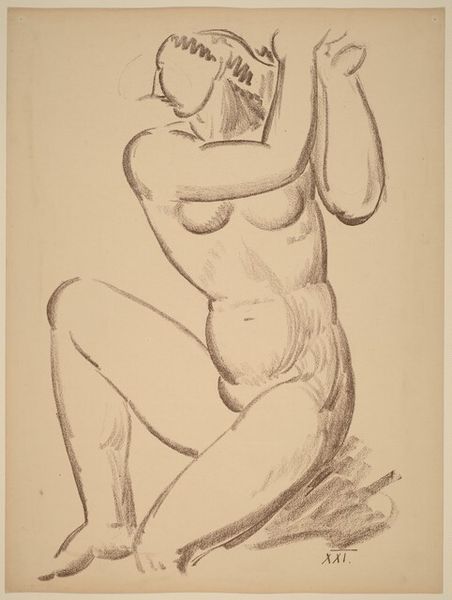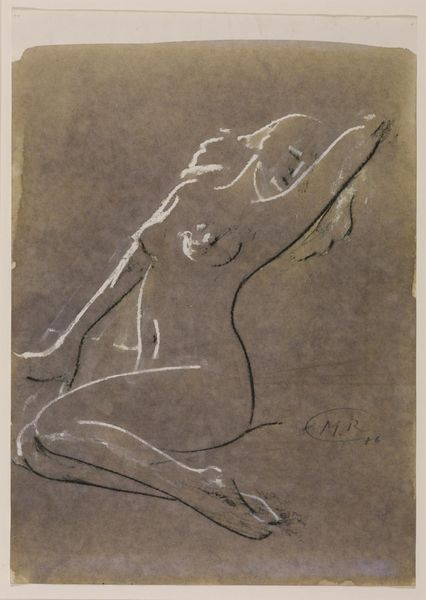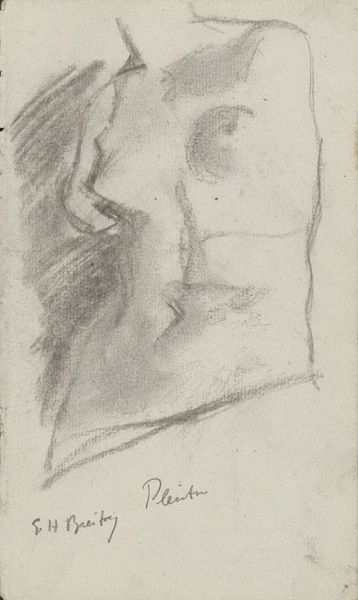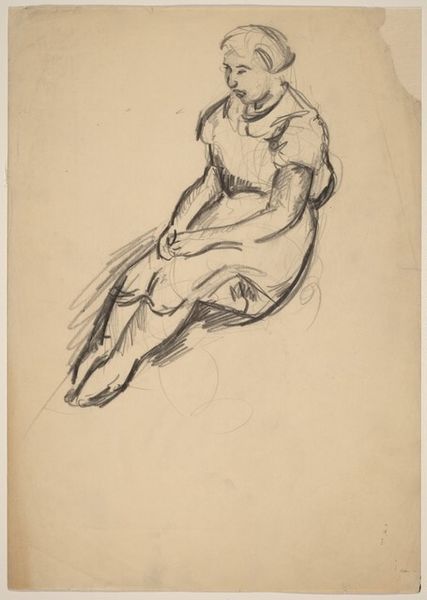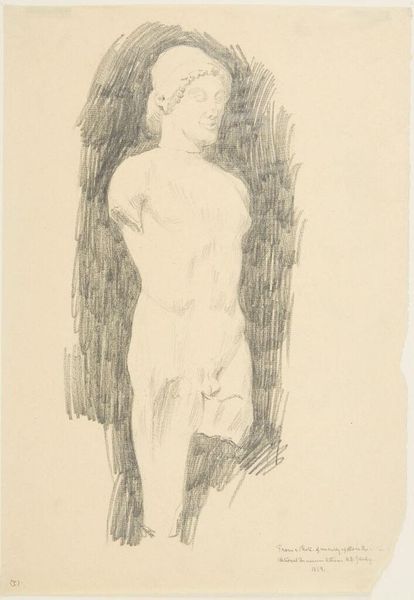
drawing, pencil
#
pencil drawn
#
drawing
#
pencil sketch
#
figuration
#
form
#
pencil drawing
#
pencil
#
academic-art
#
nude
#
realism
Copyright: Public Domain: Artvee
This sketch of an anatomical sculpture was made by Paul Cézanne, probably in the late 19th century, using graphite on paper. The choice of graphite, a readily available and relatively inexpensive material, is significant. Unlike the permanence and expense associated with oil painting, the graphite lends itself to studies, exercises, and works on paper. The appearance of the artwork is heavily influenced by the inherent qualities of graphite. Its soft, almost blurred lines, create a sense of volume, capturing the muscularity and weight of the sculptural subject. The marks, layered with hatching and cross-hatching, reveal the artist’s intensive exploration of form. Cézanne's engagement with drawing can be seen as a bridge between academic training and a modern exploration of form and perception. The use of graphite challenges traditional hierarchies between fine art and craft. Rather, it reflects a democratic approach to art-making, emphasizing the importance of process and experimentation in understanding the world around us.
Comments
No comments
Be the first to comment and join the conversation on the ultimate creative platform.
